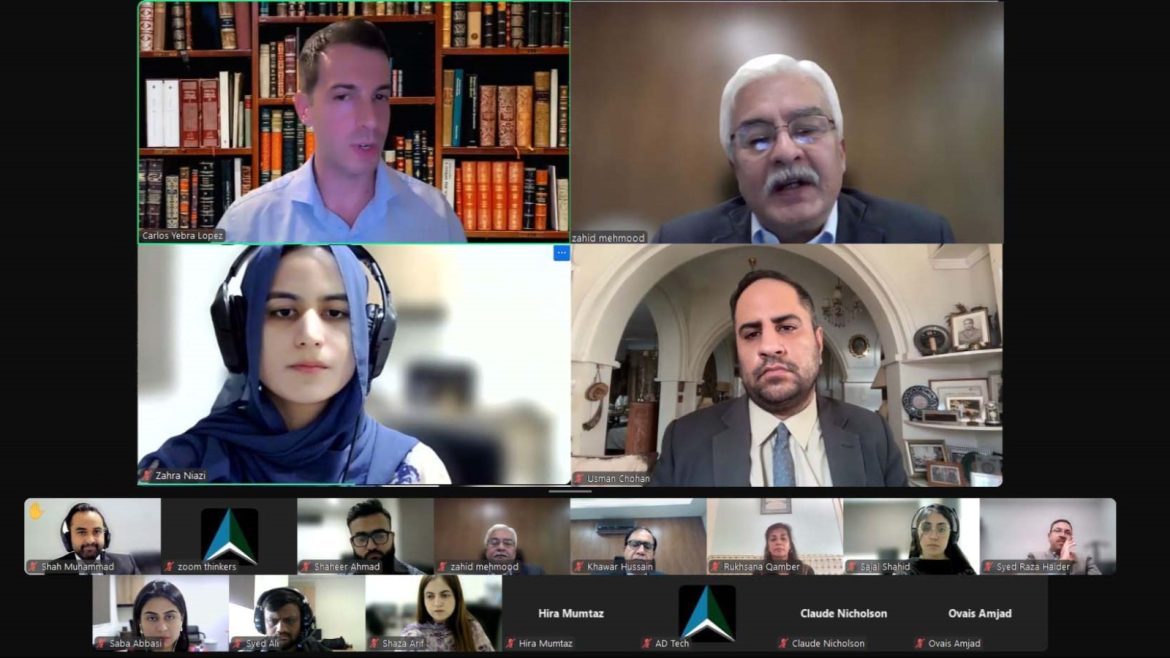WNAM REPORT: The Centre for Aerospace & Security Studies (CASS), Islamabad, organised a webinar on the book titled ‘Methodologies in Critical Terrorism Studies: Gaps and Interdisciplinary Perspectives’ under its Author’s Talk Series on 1 October 2025. CASS is an independent think tank that continues to arrange academic events for academia and practitioners interested in national security in its wider context.
Dr. Usman Chohan, Advisor to President CASS, introduced the speaker and the book’s author, Mr Carlos Yebra Lopez, and praised his contributions to Critical Terrorism Studies. He stressed that in Pakistan we have lived in the shadow of terrorism over the last few decades. Recognising the importance and relevance of the subject, it is imperative to study the methodologies involved in Critical Terrorism Studies.
Mr Carlos Yebra Lopez, revealed that terrorism in its modern form emerged alongside mass media, citing the 1972 Munich attack and similar attacks. He noted that such events spurred US government initiatives such as “Cabinet Committee to Combat Terrorism” eventually leading to the creation of Terrorism Studies as an academic field. He remarked that Terrorism Studies boomed following 9/11. However, its theoretical, epistemological, ethical, and methodological shortcomings became apparent subsequently. Mr. Lopez comprehensively explained the four major critiques of traditional Terrorism Studies, including Ontological, Methodological, Political, and cultural critiques, leading to Critical Terrorism Studies. The author cited the overuse of discourse methods, lack of sufficient quantitative or empirical analysis, silo between political signs and quantitative methods, underrepresentation, and lack of self-reflexivity as major gaps existing in the field of Critical Terrorism Studies. Furthermore, given that the discourse is largely dominated by the Global North, contributions from the Global South are limited, with post-colonialism being rarely used as a framework of analysis.
Concluding the session, Air Marshal Zahid Mehmood (Retd), Senior Director CASS, remarked that there is a notable difference between Terrorism Studies and Critical Terrorism Studies. He reemphasised the role of media and institutions that generate discussion on critical terrorism with diverse perspectives and voices. He stated that an honest study on critical terrorism studies should be able to rise above the existing biases, reflecting objectivity in the subject. He highlighted the lack of reflectivity as a notable gap in the field that needs to be addressed. He added that, in contrast to reality, terrorism was repeatedly and deliberately associated with Islamist movements, given the dearth of literature from the Global South. He urged young researchers to address this gap via in-depth research and analysis, filling the void existing in international literature.
The session concluded with an interactive Q&A, during which participants explored various aspects of the book.
CASS webinar on book titled ‘Methodologies in Critical Terrorism Studies: Gaps and Interdisciplinary Perspectives’
13


